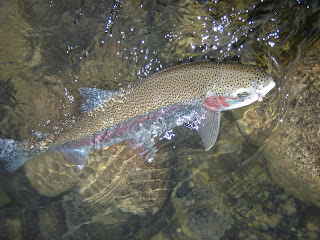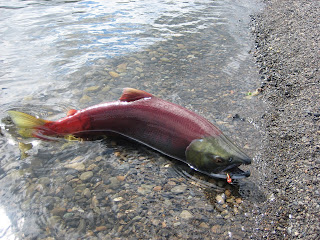Motivated in large part by this general sense of urgency, I packed several activities into the 24-hour period starting last Friday. I grabbed an hour and worked out with weights at the Google gym before ending the work week. Saturday morning, I did a bunch of work on the computer, hunched over it in a typically unergonomic manner. Then I threw the kayak on top of the truck and drove over to paddle ten windy miles on the Petaluma River (no strikes), stopping both before and after to help a friend of mine lift a large band saw in and out of his truck. While we were watching soccer and drinking beer I noticed a slightly odd feeling in my back, but decided to ignore it. After all, I needed to come home at midnight and lift the boat around and hose down all my salty gear before getting into bed. I need my back to just quietly do its job so that I can do the things I do.
I could no longer ignore my back when my eyes opened the next morning. Coming out of sleep, my dreamish mind could have sworn that a heavy specimen of Homo Sapiens Neanderthalensis was sitting on my lower back and gloating as he twisted around a large, crude spear head that was thrust deep under my right scapula. I am talking REAL pain, so bad that I was genuinely awed by the raw intensity of it. I couldn't move without making the spearhead twist. I couldn't bend my neck down one millimeter from a strangely cramped position. I couldn't even go to work for three days -- I was really and truly down for the count.

If you are an active person who depends somewhat on getting outside for your general sense of well-being, then maybe you can imagine my sinking spirits. All this was especially depressing because it happened in the heart of my paddling ramp-up for a Christmas time sojourn fishing on the Sea of Cortez. They told me it would be windy and tough conditions, and I shrugged it off thinking, "whatever, I'm a pretty strong paddler here." With my rhomboids in spasm, I couldn't even shrug at all! Paddling around in the wind was hard to imagine. Very depressing.
OK, I'll stop whining and cut to the good news: the caveman gave up and went back to extinction on Thursday, and by Sunday I was out on the bay doing an experimental two-mile paddle (no strikes). So far, no recurrence of any bad symptoms, and the flexibility of my neck is back to normal. I'm having high hopes of doing a decent delta paddle this weekend (some strikes? Please?) and going down to Baja as planned.
What is the plan? Basically this: after visiting my favorite uncle in Palm Desert, make the hard drive all the way down to Magdalena Bay, perhaps stopping to do a bit of paddling at San Lucas Cove. In fact, I'd go no further than San Lucas but for the poor timing of the season and the worse timing of the tides, which should be pretty extreme around the 12/23 full moon. "Mag Bay," by contrast, will have mellow conditions and tends to fish well year-round I hear. By the time I turn back north, the tides will be better for a couple of stops on the way, the last of which may include some cool paddling around the Enchanted Isles near Puertecitos, which I hope will be interrupted early and often by the strikes of triggerfish, pargo, grouper and perhaps a bonus corvina or yellowtail. We shall see.
One thing's for sure: the phrase, "well, at least you have your health!" is no idle platitude . . . .




































